In late 2023, SiteGPT was a promising AI website assistant quietly gaining traction among early adopters. Fast forward to 2025, and the platform has matured into a core digital tool for thousands of companies. From startups using it as their first customer support agent to multinational brands deploying it for multilingual lead qualification, SiteGPT has grown beyond a chatbot; it’s now a key productivity partner. This transformation didn’t happen overnight; it’s the result of rapid product innovation, market demand for conversational AI, and a measurable shift in how businesses interact with their audiences online.
Key Takeaways
- 192% of enterprise users report that SiteGPT reduced their average customer query resolution time.
- 237% of small businesses integrating SiteGPT report increased online conversions within three months.
- 3$28.4 billion projected global AI chatbot market value in 2025, with SiteGPT holding a notable share.
- 454% of e‑commerce companies now consider SiteGPT essential to their operations.
Total Number of Live SiteGPT Websites
- As of July 2025, there are 1.8 million live SiteGPT websites globally.
- 52% of those are hosted in North America, reflecting strong early adoption.
- 21% are in Europe, showing steady but slower growth compared with the US market.
- 14% are in Asia-Pacific, with expansion led by Japan, India, and Australia.
- The median site age for active SiteGPT installations is 11 months.
- 7% of these websites have integrated SiteGPT across multiple brand domains.
- 43% of live sites use SiteGPT primarily for lead generation, not customer support.
Future AI Technology Demand Predictions
- Better predictive analytics will lead AI demand, with 41.3% of respondents prioritizing this capability.
- Enhanced AI-driven content suggestion ranks second, valued by 22.2% for improving personalization.
- Improved sentiment analysis tools attract 18.7% interest for better understanding customer emotions.
- Automated communication is sought by 6.5% to streamline messaging and customer interactions.
- Better integration with SM platforms holds 3.5% demand for smoother social media workflows.
- AI-powered recommendation engines are important to 3%, enhancing tailored content and product suggestions.
- Improved AI content moderation also appeals to 3%, helping maintain platform safety and quality.
- More detailed tracking is a niche but growing interest at 1.7%, aiding precise data-driven insights.
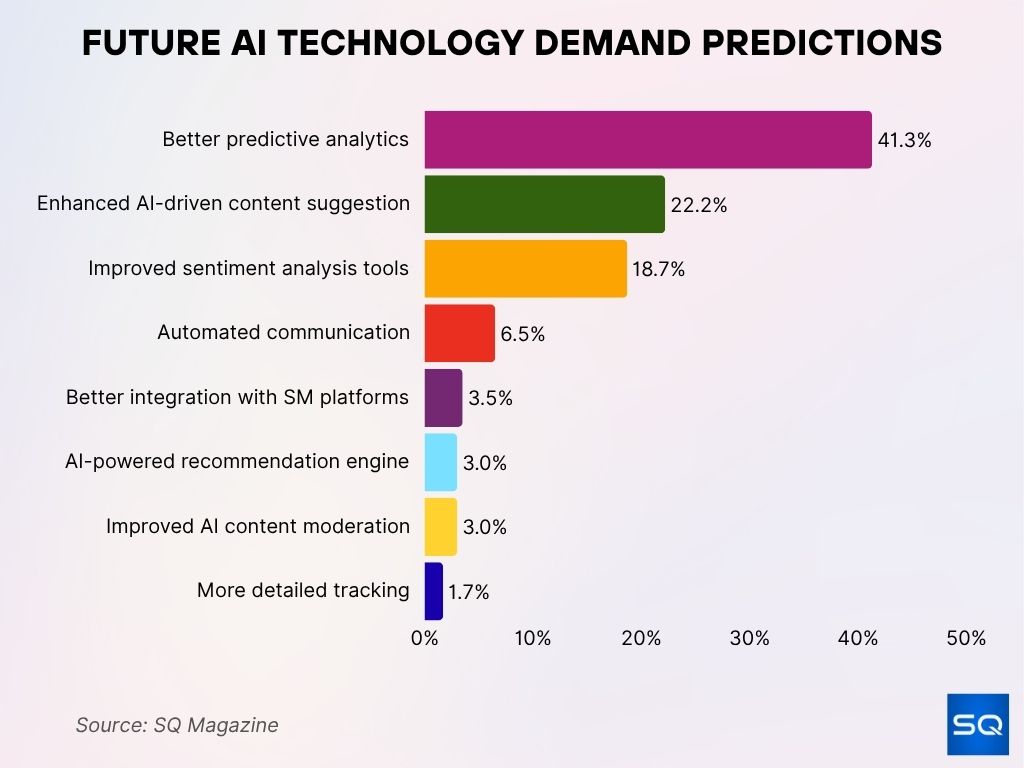
Industry Breakdown of SiteGPT Users
- 54% of e‑commerce retailers use SiteGPT for customer engagement and order tracking.
- 18% of SaaS platforms integrate it for technical support and onboarding.
- 12% of educational institutions use SiteGPT for student queries and enrollment assistance.
- 8% of financial services firms leverage it for loan pre-qualification and account assistance.
- 5% of healthcare providers have implemented SiteGPT for patient scheduling and FAQs.
- 3% of real estate agencies use it for property inquiries and lead capture.
- <1% are niche deployments in hospitality, gaming, and media sectors.
Companies Evaluating or Adopting SiteGPT
- 62% of companies currently trialing SiteGPT cite reduced support costs as the top motivation.
- 28% of evaluators say integration with their CRM is the deciding factor for purchase.
- The average evaluation period before adoption is now 21 days, down from 35 days in 2023.
- 44% of companies adopting SiteGPT replace at least one other chatbot platform.
- 35% of new customers come via referrals from existing SiteGPT users.
- 19% of prospects sign up after seeing SiteGPT in action on a competitor’s website.
- 87% of evaluators who complete a 30-day trial end up converting to a paid plan.
AI in Marketing Usage Insights
- 74% of marketers report that AI usage has increased due to existing tool integrations.
- 86% of marketers using AI spend time editing AI-generated content before publishing.
- 55% of marketers say AI has boosted team productivity significantly.
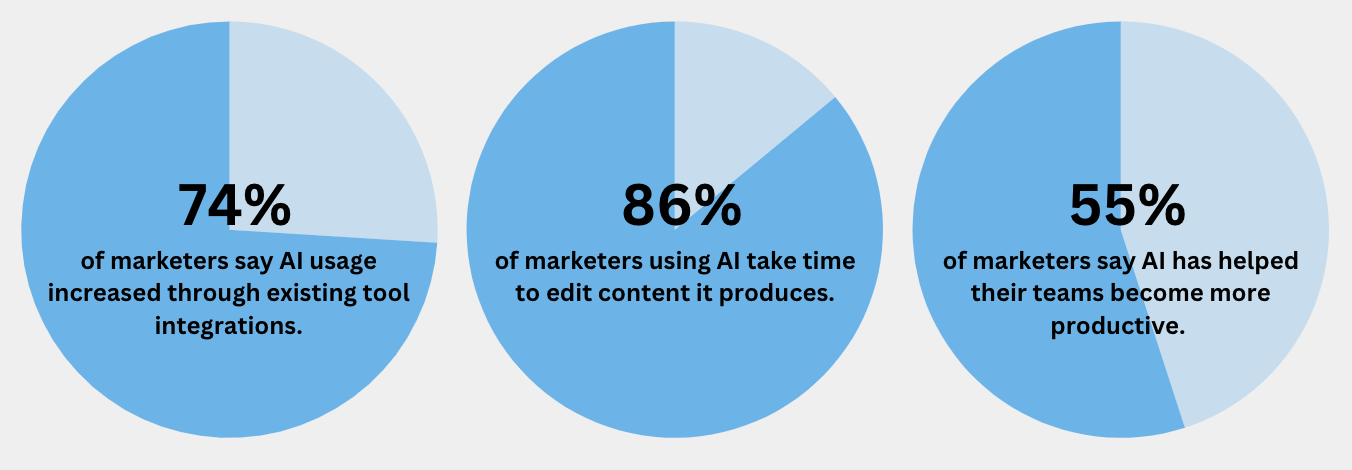
Geographical Distribution of SiteGPT Implementations
- 52% of active SiteGPT deployments are in North America, with the US representing the largest single market.
- 21% are in Europe, with the UK, Germany, and France leading adoption.
- 14% are in Asia-Pacific, fueled by growth in Japan, India, and Australia.
- 6% are in Latin America, primarily Brazil and Mexico.
- 4% of active accounts are in the Middle East and Africa, with strong interest from UAE-based companies.
- 32% of US-based SiteGPT customers also use the platform to serve international audiences in multiple languages.
- The highest per capita adoption rate is in Singapore, followed by the US and the UK.
Timeline of SiteGPT Customer Growth
- SiteGPT crossed 1 million active websites in late 2024.
- From January to July 2025, active installations grew by 17%.
- The platform recorded 4 consecutive quarters of double‑digit growth.
- In 2023, SiteGPT averaged 8,000 new activations per month; by mid‑2025, that number is 15,400.
- The fastest adoption spike occurred in Q2 2024 following the release of the multilingual instant‑training feature.
- 72% of all current users joined SiteGPT within the past 18 months.
- 6% of installations from 2023 remain active without interruption, showing strong long-term retention.
Predicted Chatbot Use Cases
- 37% of users would turn to chatbots for quick answers in emergencies.
- 35% expect to use them for resolving complaints and getting detailed explanations.
- 34% would use chatbots to connect with human customer service.
- 33% see chatbots as useful for making reservations at restaurants or hotels.
- 29% plan to use them for paying bills.
- 27% would purchase basic items through chatbots.
- 22% would rely on chatbots for shopping inspiration or to join mailing lists.
- 18% want to communicate with multiple brands using a single chatbot program.
- 14% say they wouldn’t use chatbots for any of the listed purposes.
- 13% would purchase expensive items via chatbots.
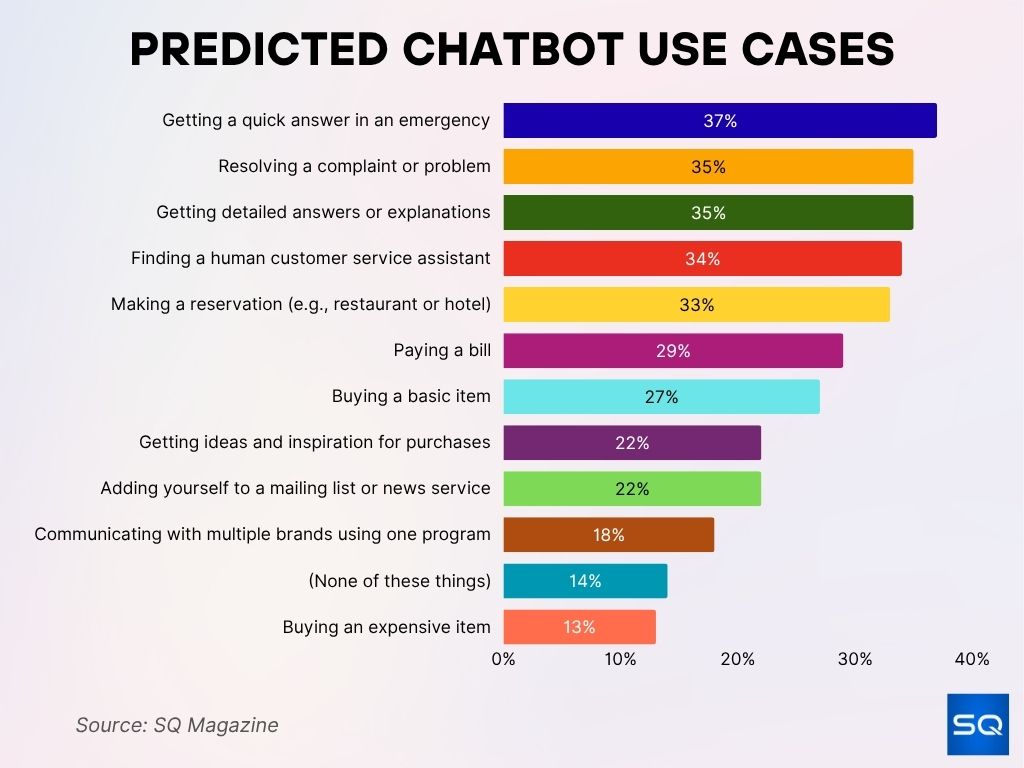
Use Cases and Applications of SiteGPT
- 43% of deployments focus on lead generation through personalized conversation flows.
- 38% are primarily used for customer support, reducing inbound email tickets.
- 29% integrate SiteGPT as a sales assistant to guide buyers through product discovery.
- 14% of organizations use it for knowledge base search and internal training.
- 9% use SiteGPT as an event assistant for scheduling and attendee management.
- 7% apply it in technical troubleshooting, especially in SaaS and IT service firms.
- 5% of healthcare and wellness providers use SiteGPT for patient onboarding and FAQ handling.
Comparison with Competitor Platforms
- SiteGPT holds 18% of the global AI website assistant market in 2025.
- LivePerson and Intercom remain the closest competitors, with 14% and 12% shares respectively.
- SiteGPT’s average user satisfaction score is 4.6/5, compared with 4.2 for its closest rival.
- 87% of SiteGPT users rate its customization flexibility higher than competitors.
- 65% say they chose SiteGPT due to its native website integration, which avoids dependency on third‑party scripts.
- The average setup time is under 8 minutes, faster than the industry average of 15 minutes.
- SiteGPT offers 39 supported languages, compared with an average of 24 across competitor tools.
Global AI Chatbot Market Growth Outlook
- The AI chatbot market is projected to grow from $8.6 billion in 2024 to $31.11 billion by 2029.
- This expansion reflects a strong CAGR of 29.3% over the forecast period.
- In 2025, the market is expected to reach $11.14 billion, driven by rising AI adoption.
- Continued growth is fueled by technological advancements, business automation, and customer service enhancements.
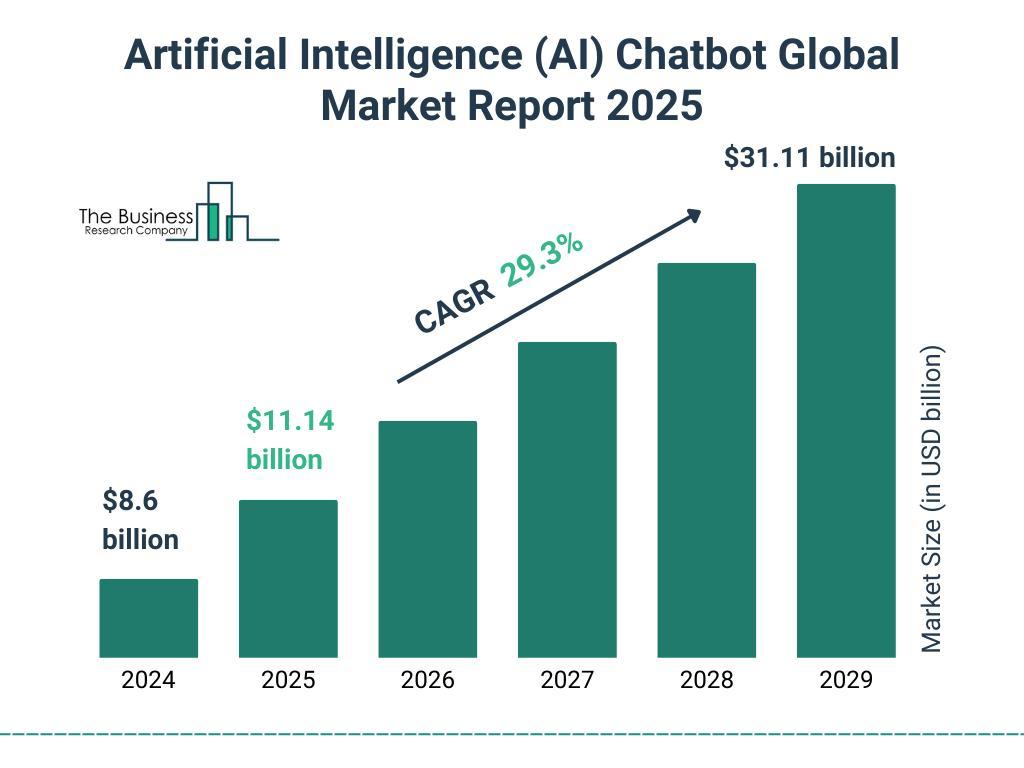
Tokens and Requests Processed by SiteGPT
- SiteGPT processes 4.7 billion requests monthly as of July 2025.
- The system handles 21 trillion tokens every month across all active accounts.
- Peak traffic hours see up to 210 million requests in a single day.
- 78% of processed requests are customer‑facing interactions, while 22% are internal queries.
- The average token consumption per user session has grown by 12% in the past year.
- High‑volume enterprise clients generate over 40 million requests per month each.
- Token efficiency improved by 9% after compression updates were introduced in April 2025.
Integration and Features
- SiteGPT integrates natively with over 50 third‑party tools, including Salesforce, HubSpot, and Zendesk.
- 62% of customers connect SiteGPT with a CRM as part of their deployment.
- 49% use analytics integrations for tracking engagement and conversation outcomes.
- 41% have enabled multilingual AI support, which adapts to customer language in real time.
- The Smart Context Memory feature now retains conversation history for up to 90 days.
- 32% of users deploy SiteGPT alongside voice‑based AI assistants for omnichannel experiences.
- The Workflow Automation tool adoption rate grew by 28% in the last 12 months.
Breakdown of AI User Types
- 46.5% are AI Novices who have tried AI but use it rarely and lack strong prompt creation skills.
- 33.7% are AI Experimenters who use AI occasionally but have yet to see major productivity gains.
- 10.9% are AI Skeptics who either avoid AI or have little interest in its potential.
- 7.9% are AI Practitioners who use AI weekly and report noticeable productivity improvements.
- 1% are AI Experts who fully understand AI’s capabilities and achieve significant productivity benefits.
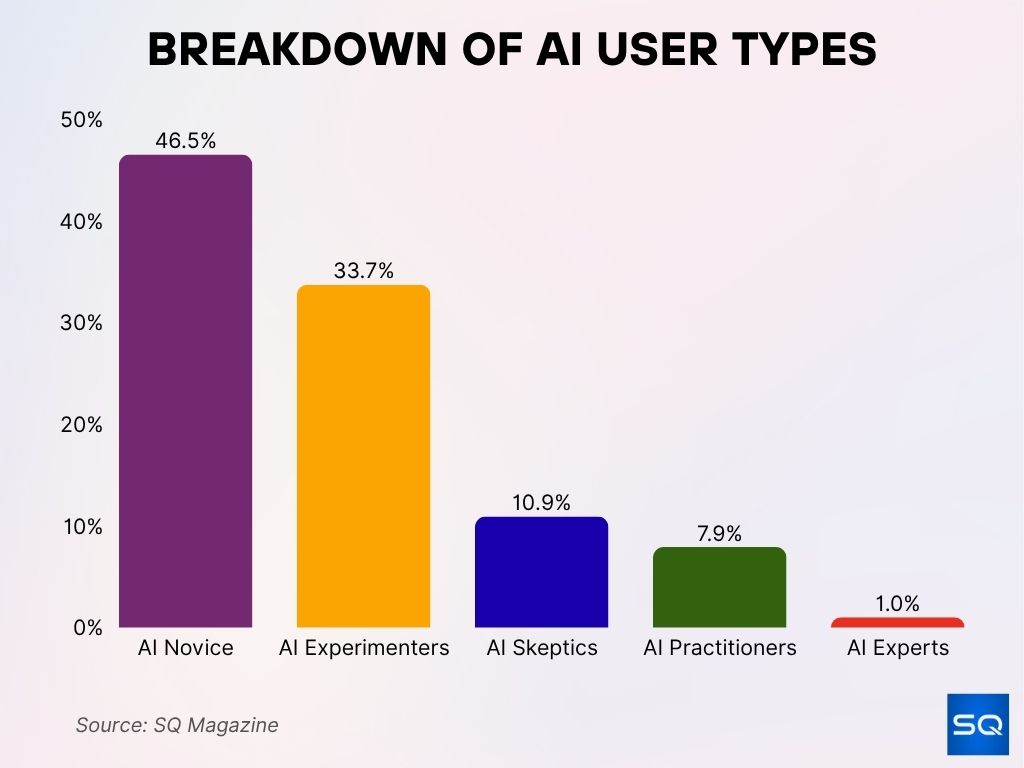
Infrastructure Metrics
- SiteGPT operates on 12 global data centers to minimize latency for international users.
- Average response time is 0.42 seconds, down from 0.55 seconds in 2024.
- 99.97% uptime was maintained for the past 12 months.
- Peak concurrent connections reached 3.1 million during high‑traffic events in May 2025.
- AI model retraining cycles now occur every 14 days, ensuring fresher responses.
- 72% of workloads run on renewable energy‑powered servers, part of SiteGPT’s sustainability initiative.
- Cloud redundancy ensures automatic failover within under 1 minute in case of disruption.
Impact on Customer Support Efficiency
- Businesses using SiteGPT have seen a 41% reduction in average ticket volume.
- 92% report improved first‑response time to under 30 seconds for most queries.
- Support teams handling 5,000+ monthly tickets reduced staffing needs by 22% without hurting quality.
- 48% of companies report higher customer satisfaction scores since integrating SiteGPT.
- Average self‑service resolution rates have grown to 68%, up from 54% in early 2024.
- 3 in 4 SiteGPT users say it freed up their support staff to focus on complex cases.
- Time to resolve common FAQs fell from 3 minutes to less than 1 minute in most implementations.
Top AI Applications Among Business Owners
- 56% use AI for customer service to enhance response speed and support quality.
- 51% apply AI in cybersecurity and fraud management to detect and prevent threats.
- 47% leverage digital personal assistants for scheduling and task automation.
- 46% utilize AI for customer relationship management to improve engagement and retention.
- 40% use AI in inventory management for better stock control.
- 35% apply AI to content production for marketing and communication.
- 33% rely on AI for product recommendations to boost sales.
- 30% use AI in accounting and supply chain operations for efficiency.
- 26% adopt AI for recruitment and talent sourcing to find suitable candidates.
- 24% employ AI in audience segmentation for targeted marketing.
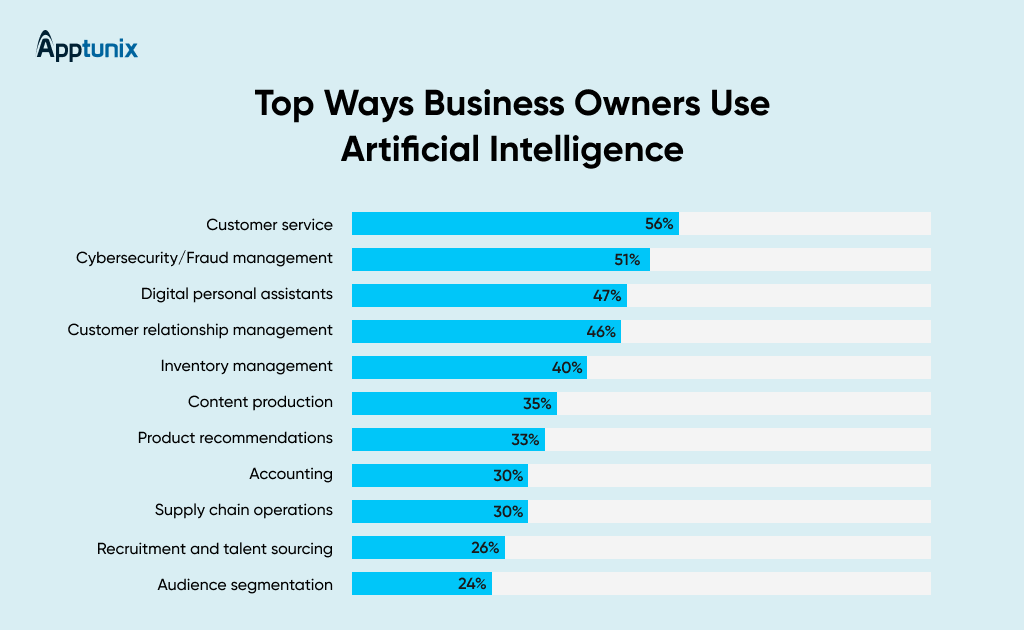
Customer Retention and Engagement
- SiteGPT customers have a 12‑month retention rate of 81%.
- 23% of brands using SiteGPT report higher repeat purchase rates.
- The average session duration for returning customers increased by 15% year‑over‑year.
- 29% of businesses attribute improved loyalty program sign‑ups to SiteGPT prompts.
- 18% more customers opt‑in for marketing communication after engaging with SiteGPT.
- Engagement metrics improve by 34% when SiteGPT is paired with personalized upsell recommendations.
- High‑touch accounts see a 21% lift in customer lifetime value.
User Satisfaction and Feedback Trends
- 87% of active users rate SiteGPT 4 or 5 stars for overall satisfaction.
- 78% highlight ease of use as their favorite feature.
- 69% praise SiteGPT’s integration capabilities over competitors.
- The most common improvement request, deeper analytics, is noted by 32% of respondents.
- 26% want expanded voice interaction capabilities.
- The Net Promoter Score (NPS) for SiteGPT in 2025 is +48, an increase from +39 last year.
- 14% of detractors cite pricing as their primary concern.
Challenges and Limitations Faced by Users
- 32% report difficulty in training AI for niche industry knowledge.
- 27% find that SiteGPT’s analytics dashboard lacks certain custom metrics.
- 21% cite occasional context resets in very long conversations.
- 19% mention challenges with multi‑site synchronization for larger enterprise deployments.
- 16% say they’d like more automation triggers beyond current workflows.
- 14% point to limited voice AI integration compared with dedicated voice assistant platforms.
- 11% have faced delayed feature rollouts for industry‑specific requests.
Forecast and Future Adoption Trends
- The global AI website assistant market is projected to grow 20% annually through 2028.
- SiteGPT is expected to surpass 2.3 million active sites by the end of 2026.
- Adoption in Asia‑Pacific is forecast to grow by 28% year‑over‑year.
- 47% of existing SiteGPT customers plan to expand their use to more business functions.
- Industry analysts expect real‑time voice AI integration by mid‑2026.
- Personalized AI‑driven recommendations are set to become the top‑used SiteGPT feature by 2027.
- Enterprise‑level deployments are predicted to make up 41% of all SiteGPT subscriptions by 2028.
Recent Developments
- In Q1 2025, SiteGPT introduced real-time API streaming, enabling faster integrations with third-party CRM and analytics tools.
- 17% growth in monthly active users was recorded between January and June 2025.
- The platform now supports 39 languages, compared with 27 in early 2024.
- AI response accuracy improved by 14% following the launch of the Adaptive Learning Model in March 2025.
- 62% of beta testers reported higher satisfaction with SiteGPT’s context-aware conversation memory.
- The average setup time for new customers has dropped to under 8 minutes thanks to a streamlined onboarding flow.
- SiteGPT now processes over 4.7 billion monthly requests across all user accounts.
Conclusion
In just a few short years, SiteGPT has gone from an emerging AI tool to a widely adopted, business‑critical platform. By delivering measurable gains in customer support efficiency, retention, and engagement, it has secured a strong position in the competitive AI assistant market. While challenges remain in analytics, niche training, and advanced automation, SiteGPT’s product roadmap and expanding integrations suggest it will continue shaping how businesses interact with their customers. Looking ahead, its role will likely expand beyond web‑based interactions into more immersive, omnichannel experiences, a transformation that could redefine digital customer engagement in the coming decade.



















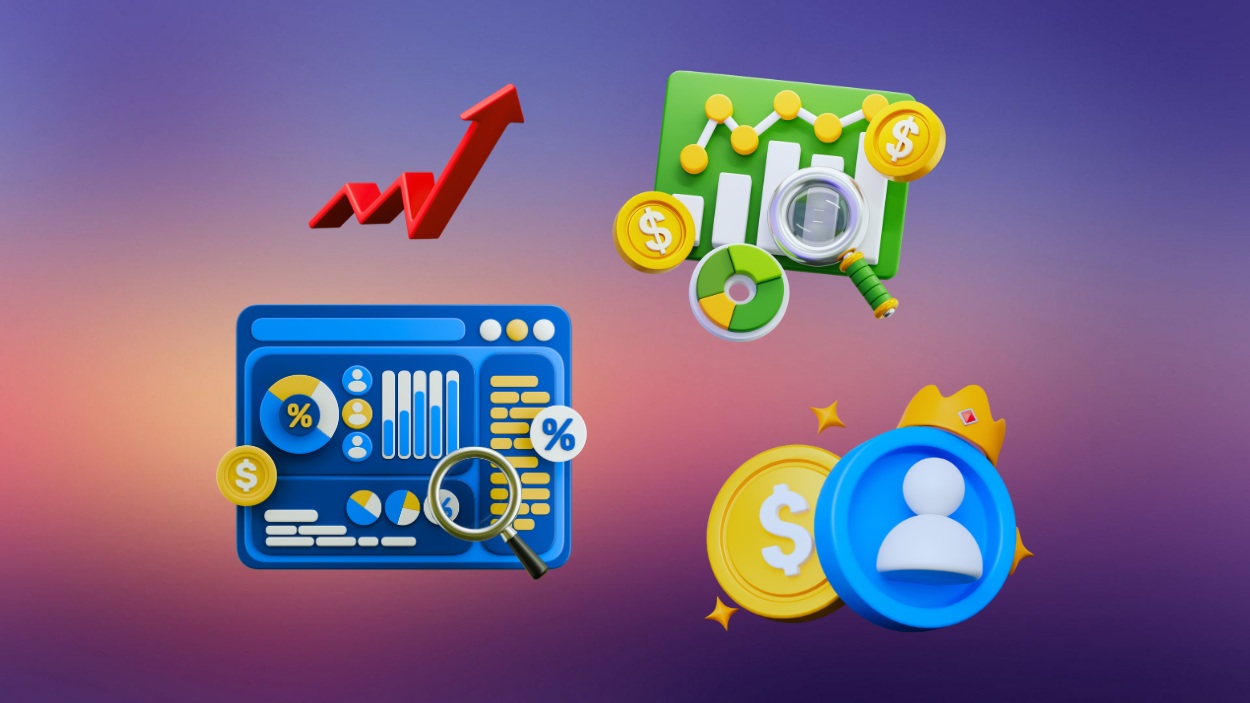








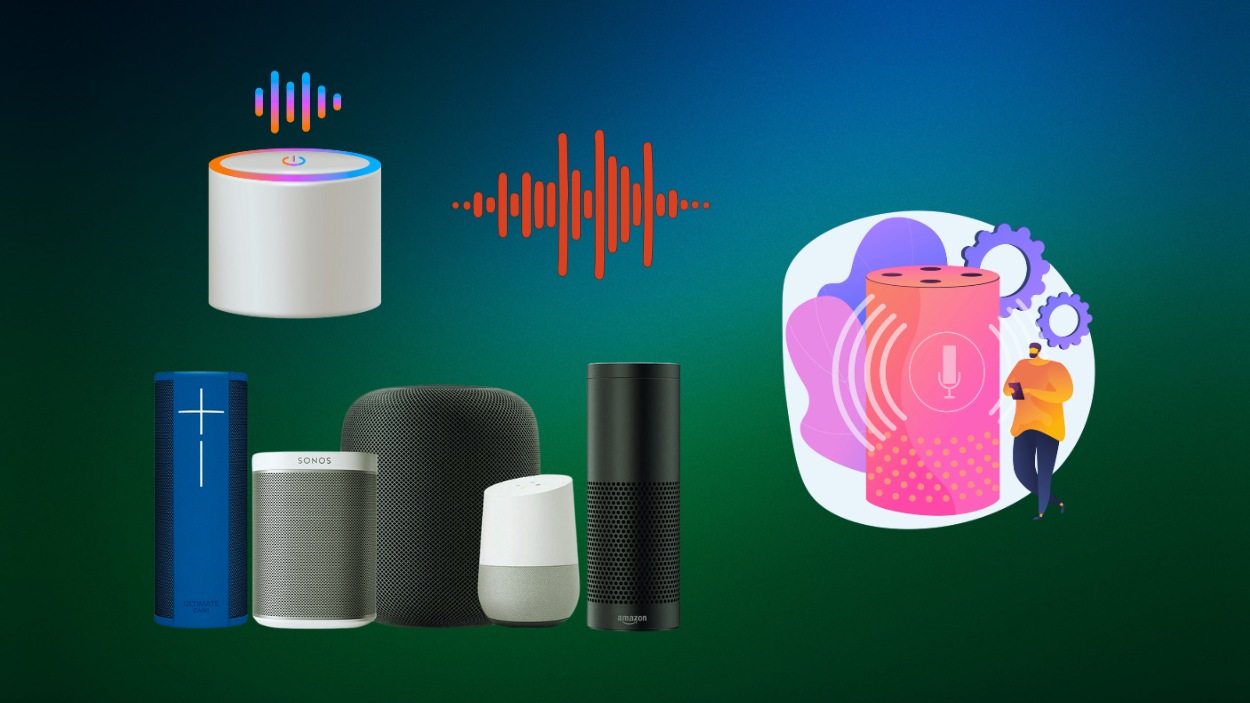








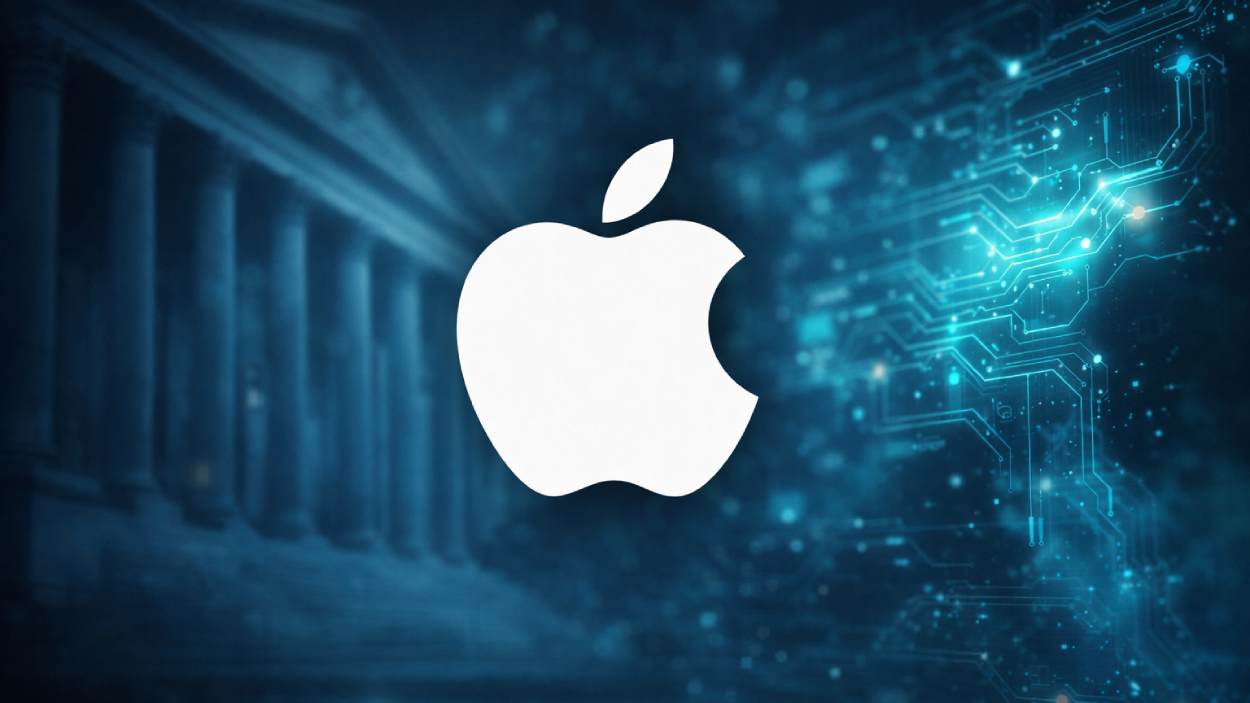













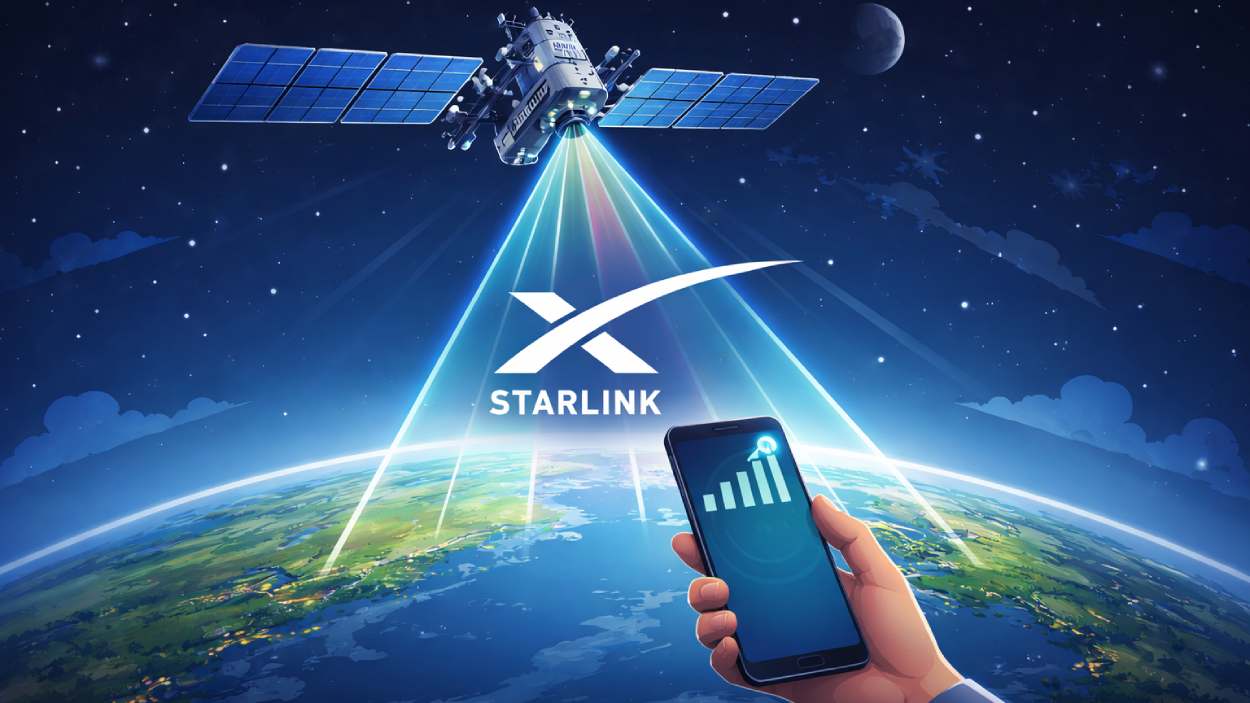










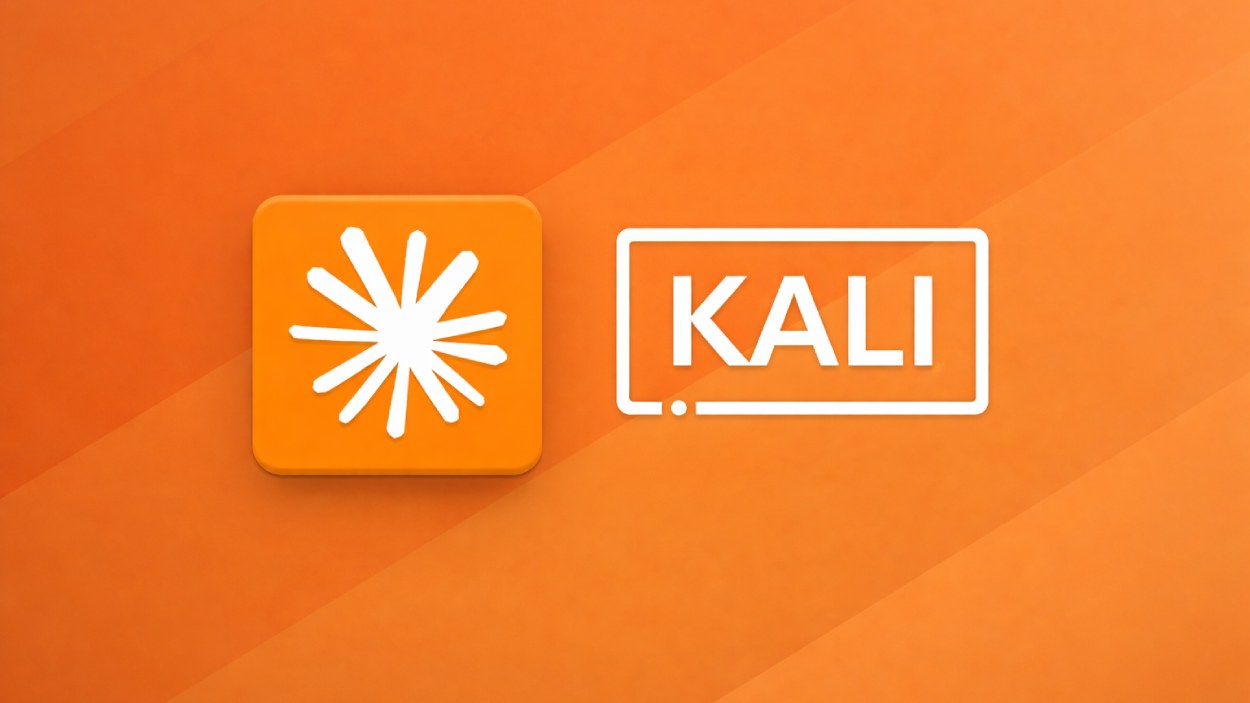




Aisyah
SiteGPT has clearly grown from a niche tool into an essential AI assistant for many businesses.